Popular games for platform 64DD
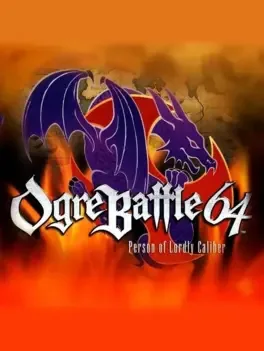
"Ogre Battle 64: Person of Lordly Caliber is a tactical RPG for the Nintendo 64. Featuring a gripping storyline with multiple possible endings, and a genre-defining character class system, this strategic epic has rightly retained its place in the hearts of tactical RPG fans for over a decade. The game tells the story of Magnus Gallant, a recently graduated officer of the Palatinean Army who is assigned to the troubled southern region of his native land. There he witnesses the plight of the lower classes – the victims of a tyrannical ruling elite whose only thought is for the preservation of their own lofty status. With civil war brewing, Magnus is faced with a terrible choice: to betray his own noble origins in the name of liberty, or turn a blind eye to the evils of his rotten society."
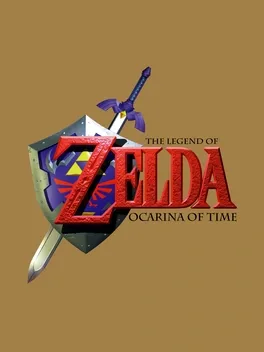
The Legend of Zelda: Ocarina of Time is the fifth main installment of The Legend of Zelda series and the first to be released for the Nintendo 64. It was one of the most highly anticipated games of its age, and is listed among the greatest video games ever created by numerous websites and magazines. The gameplay of Ocarina of Time was revolutionary for its time, it has arguably made more of an impact on later games in the series than any of its predecessors even though they had the same cores of exploration, dungeons, puzzles and item usage. Among the gameplay mechanics, one of the most noteworthy is the time-traveling system. The game begins with the player controlling the child Link, but later on an adult Link becomes a playable character as well and each of them has certain unique abilities. Ocarina of Time also introduces the use of music to solve puzzles: as new songs are learned, they can be used to solve puzzles, gain access to new areas and warp to different locations. Dungeon exploration is somewhat more puzzle-oriented than in earlier games but they are not too complex.
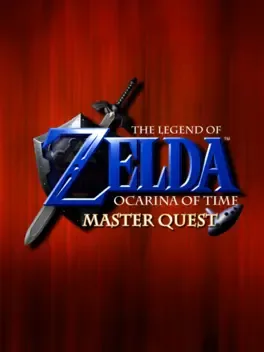
The Legend of Zelda: Ocarina of Time - Master Quest is a reworked version of the original Ocarina of Time for the Nintendo 64. Master Quest contains largely the same content as the original game but with more redesigned and difficult dungeons. Master Quest was available on a special bonus disc that also contained the original Ocarina of Time, it was given out in limited quantities with preorders of The Wind Waker. It was previously developed to be released as an expansion to the original game via the Nintendo 64DD, but that version was cancelled due to the lackluster sales of the hardware.
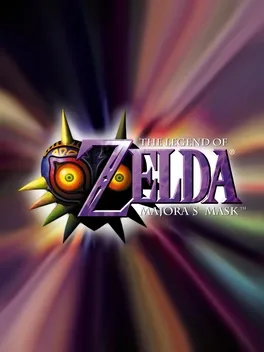
The Legend of Zelda: Majora's Mask is a direct sequel to Ocarina of Time, it utilizes the same engine and visual style as its predecessor. The game retains the traditional elements of Zelda games as well as those introduced in Ocarina of Time, such as active blocking with a shield, various throwing items, and the usage of melodies played on the ocarina to solve puzzles. Compared to the previous Zelda games, this installment is more oriented towards interaction with NPCs and has a larger variety of items, optional quests, and mini-games. It also includes a time system that spans three days, and this cycle must be reset periodically to progress through the game.
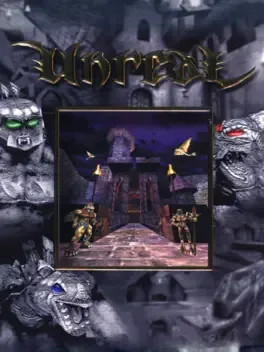
Your prison ship has crash-landed on the fastest, sleekest, most dangerous 3D world ever created. Look around, crystal clear water shimmers, shadows dance and shift, alien architecture fades into the horizon. Discover the secret of this mysterious planet and find out what caused a peaceful race to be enslaved by vicious merciless aggressors.
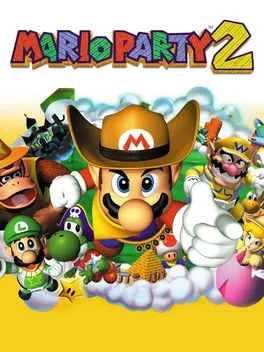
Mario and the gang are back for another round of Bowser-bashin' party action! Watch as your favorite Nintendo characters don different duds for each of the five all-new Adventure Boards! A slew of new tricks and devices bring new levels of challenge and excitement to board game play. New board maps, new Mini-Games, new action and new surprises means a whole new batch of fun! Get ready to unleash your best Hip Drops, hammer swings and high-flying high junks for another round of frenzied multi-player action!
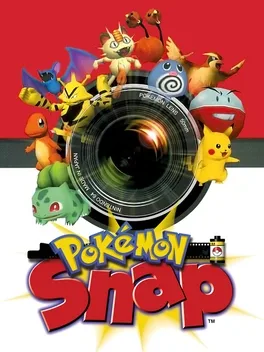
Traverse various areas and take photographs of different types of Pokémon by discovering their secrets. Capture the perfect frame to gain bonus points from Professor Oak in order to unlock helpful items and locate and photograph the elusive Mew, a legendary Pokémon whose existence has never been recorded.
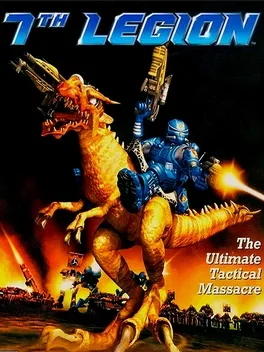
There's no Salvation from this army! Can you survive this furiously fast, kill-for-money, real-time blood-fest? There's nowhere to hide as you smash your opponent in 'to-the-limit' conflict. And, while you've got a few nanoseconds to spare, you've got to build to survive, mechs, tanks, troops, mounted slavens - a host of murderous military units who will hone their killing skills with experience. Just what devastating effect does a 7th legion priest have in battle? what happens when you summon the dark legion? The landscape is isometric and you've got to be ice-cool to survive in the blazing heat of combat. And there's more! Random power ups and a massive selection of battle cards that can turn the tides of war in a flash. But be careful: you don't know what cards your opponent is holding and even when you've got his last trooper cornered he might play the battle card that wipes away your entire force! Salvation? They'll be lucky to find a stone to crawl under!
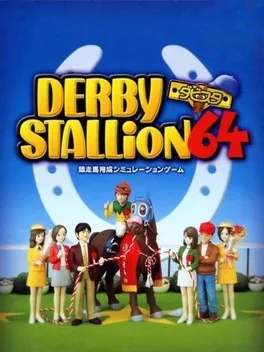
The Derby Stallion (also known in Japan by the portmanteau abbreviation DerbyStal) video games are a series of genre-merging horse-racing and business simulation games originally created by ASCII Entertainment, and released by Nintendo. The series comprises 21 games, spans more than 10 console platforms, and is the best-selling horse racing series of all time with total sales topping more than 4 million in Japan.
A cancelled RPG for the 64DD.
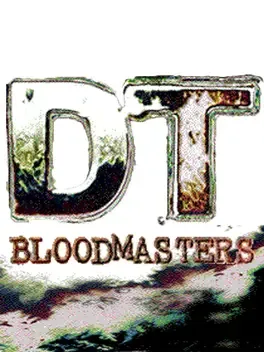
We don't have much information on DT 64 (also known as “Bloodmaster”): the game was supposed to be an Card RPG with an interesting connection-mode between the 64DD and the Game Boy. The game was in development by Marigul and Media Factory and probably it would have been published by Nintendo. The player had to collect a series of cards to use them in combat as in Magic The Gatering. DT 64 was shown at the Space World 1999 in a non-playable form: there was just a logo and some text , with the GameBoy Link Cable, that would have been used to connect the two Nintendo consoles. The GameBoy could have been used as a controller for the 64DD game, to check the card statistics and share data with a presumed Bloodmaster GB version. The two games, one for the 64DD and one for the GB, would had exchanged data to integrate parts of the story and unlock new levels / cards. Players would have been able to play online with the 64DD Randnet Network, to trade cards and complete their collection. In a scan from a Japanese magazine, we can read: “A controller with a brain.” Even if the translation is not accurate because an ideogram is hide by the reflection of the light, making it unrecognizable, the concept is certainly intriguing. Sadly DT64 was cancelled and it vanished without any more screens or info.
A virtual pet breeding and raising game for the 64DD that was being developed by Shigesato Itoi, Shigeru Miyamoto and Pokémon producer Tsunekazu Ishihara. In the game, you raised and cared for an unspecified creature. The game used the 64DD's internal clock so the creature and the world it was in would continue to grow and change, even when the game wasn't being played. It was also intended that the creature could be transferred to a Game Boy cartridge so players could continue to care for the creature on the move. Expansion kits for the game were also planned, although it was unclear how these would have been distributed. The game was discussed a number of times during 64DD development, and a playable version of the game was planned to be shown at Nintendo Spaceworld 2000, but it never appeared. In an interview, Shigeru Miyamoto stated that the game had been dropped due to the team being busy with other projects. It is believed that several of the game's ideas were later used in Animal Crossing and Nintendogs.
Desert Island 64 (also known as Super Real Island) was a simulation RPG that was to be developed by Imagineer and released on the now discontinued Nintendo 64 peripheral, the Nintendo 64 Disk Drive.
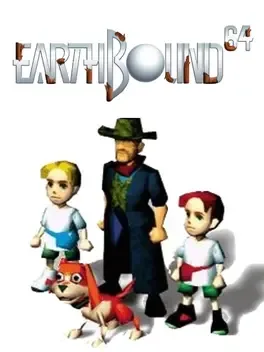
The Nintendo 64 version, cancelled in 2000, of the Game Boy Advance game MOTHER 3, released in 2006.
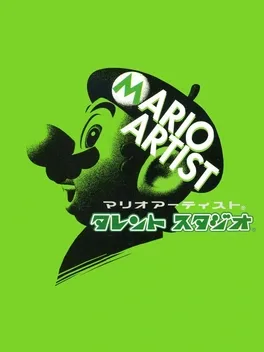
In Mario Artist: Talent Studio, the player can create their own characters in 3D, customizing features such as hair, skin, and eye color, voice, clothes, facial features, and body size and type. The process is similar to Nintendo's later Miis, but much more detailed. The characters can then be inserted into movies and animations. Events during these movies can be controlled by pressing the Z-trigger. Images from external video can be imported using the Capture Cartridge.
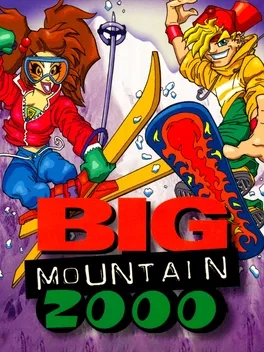
Big Mountain 2000 is a wintersports game where you can choose to race downhill with either a snowboard or skis. There are various characters to choose from, each of them with different skills. Three game modes are available in total, in which free ride, slalom and giant slalom can be chosen as track styles; game modes include championship, time attack and also a battle mode for multiplayer challenges.
Imagine a world where Square's greatest RPG saga remained loyal to Nintendo. Final Fantasy VII was originally planned for Nintendo's 64-bit console, the N64, but that version never saw the light of day.
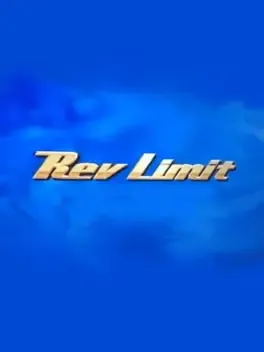
Rev Limit was an unreleased racing video game that was developed by SETA Corporation, a game developer that closed its doors in 2008. Upon its announcement, Rev Limit was met with hype, as preview shots showcased some features deemed impressive for a racing game at the time, such as dynamic lighting and variable weather conditions during races. However, the game was delayed several times and ended up being ultimately cancelled, as SETA ran into financial constraints. During development, the game seemingly switched from having an Nintendo 64 base release to being a planned launch title for the Nintendo 64 Disk Drive, a peripheral for the Nintendo 64 console. It was also intended to be released on SETA's Aleck 64 arcade board.
Mario Artist: Sound Maker was one of the games from the Mario Artist series that ended up cancelled due the the Nintendo 64 Disk Drive lackluster sales.
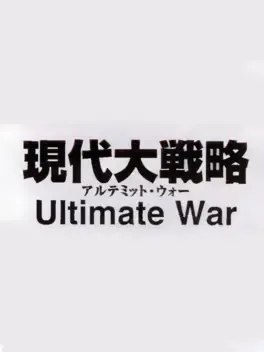
Revealed at Space World 1999, it was being developed as a turn-based strategy game, very similar to Nintendo's Wars series, but with a realistic setting. This game would have supported 4-player online battles using the Disk Drive's Randnet service. The game was delayed multiple times and eventually changed format to a cartridge. The change in format led to the removal of the online mode, and ultimately, Ultimate War was cancelled altogether.
Mario Artist: Video Jockey Maker was one of the games from the Mario Artist series that ended up cancelled due the the Nintendo 64 Disk Drive lackluster sales.